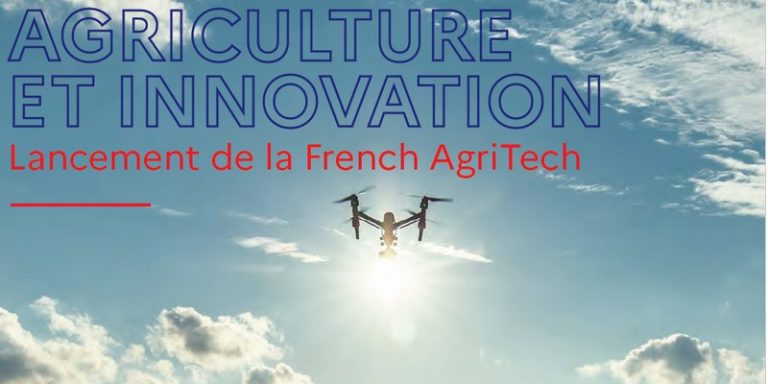
While the DIGIFERMES label is launching its call for applications, the government is focusing on agriculture and innovation with the launch of the French AgriTech. With this initiative, the government wishes to support the development, maturation and export of know-how in the AgriTech and FoodTech sector, a challenge for food sovereignty, but also for industry. France is currently the third country with the most AgriTech start-ups created per capita according to Tracxn, WIPO, Simago.
French AgriTech: a subtle blend of French Tech and agricultural know-how
On August 30, the first kick-off meeting of the French AgriTech was held in the presence of the Minister of Agriculture and Food Julien Denormandie and the Secretary of State for Digital Cédric O. Around a panel of AgriTech and FoodTech start-ups, institutional funders and stakeholders, the ministers initiated the collective dynamics of the French AgriTech towards a common goal of accelerating innovation for food sovereignty in France.
200 million euros will be mobilised for start-ups, SMEs and ETIs in the FoodTech and AgriTech sectors through calls for projects managed under PIA 4 for 2021-2025. Two first calls for projects will be launched in September on the themes of “innovating for a successful agro-ecological transition” and “meeting the food needs of tomorrow”. Bpifrance will also support innovation in AgriTech and FoodTech. Its funding has increased from 80 million euros per year to 135 million euros in 2020. In total, nearly 700 million euros will be deployed over the next five years.
The government will also rely on the National Research Institute for Agriculture, Food and the Environment (INRAE) where 212 start-ups have been created in this environment since 1999. The Institute’s ambition is to triple the number of companies created each year to about 30 new start-ups per year, based on a significant increase in financial resources by mobilizing PIA4 funding dedicated to (pre)maturation and R&D support within young companies.
What fields of action for AgriTech and FoodTech?
The fields of action for AgriTech and FoodTech are as follows:
- Enabling better adaptation to the challenge of climate change: while the recurrence and violence of episodes related to climate change all too often come to affect farmers, FoodTech and AgriTech carry solutions both to improve forecasting, protection and resilience of farms. But beyond fighting the weather, these solutions can also help improve farm management and know when is the best time, given the weather conditions, to sow, harvest, grape harvest, put out livestock, etc.
- Accelerate the implementation of sustainable and agro-ecological practices: today, more than 92% of farmers say they are already implementing sustainable practices (limiting inputs, preserving water, improving soil quality). The solutions offered by AgriTech and FoodTech often accompany this desire of the farming community to combine sustainable practices with competitiveness. Many companies are helping farmers to fully commit to the agro-ecological transition. Whether it’s by reducing inputs, better managing resources or capturing carbon in the soil, the solutions exist and they are multiplied tenfold thanks to innovations.
- Supporting the economic life of a farm and making daily life easier: running a farm is like running a business. You have to manage your expenses, invest, know how to train your employees, manage their pay, their holidays, establish relationships with suppliers and buyers… In short, being a farmer is being an entrepreneur with all the complexity of life and the same daily routine as any other business manager. To lighten this daily routine, solutions exist! For example, today, 80% of farmers use at least one decision support software (management of procedures, cost optimization, etc.) and 3 farmers out of 4 have at least one robotic tool.
- Developing more sustainable consumption patterns: from “anti-waste” initiatives such as TooGoodToGo to those enabling greater transparency in food products such as OpenDataFood or Yuka, FoodTech and AgriTech solutions are also developing in favour of more sustainable and healthy consumption practices. Numerous tools are also being developed for agri-food companies to secure their supplies, particularly via blockchain, or for collective catering networks seeking to develop products from short circuits.
- Encourage the development of new agricultural and food resources: the transformation of our consumption patterns and the development of new diets call for a permanent adaptation of agricultural production. Historically, farmers have always been able to meet the French people’s demand for fresh, quality products from local production. In this respect, FoodTech and AgriTech start-ups are in the vanguard in supporting these societal aspirations, whether to develop products based on local plant proteins or to reduce the dependence of livestock on foreign, and particularly South American, fodder.
Translated from Lancement de la French AgriTech par le gouvernement pour soutenir l’agriculture et l’innovation









